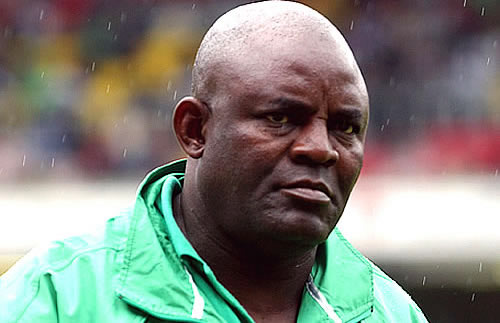Christian Chukwu, the revered captain of Nigeria’s Green Eagles and an iconic figure in African football, passed away at the age of 74, leaving a void in the hearts of millions. His death, which occurred at the Niger Foundation Hospital in Enugu State, triggered an outpouring of grief and tributes from prominent figures across the nation, including President Bola Tinubu, former Vice President Atiku Abubakar, and numerous sports personalities. Chukwu’s legacy transcends his on-field achievements; he embodied patriotism, excellence, and sportsmanship, inspiring generations of footballers and fans alike. His leadership, both as a player and coach, significantly shaped the trajectory of Nigerian football, and his impact resonated across the continent.
Tinubu, in his tribute, hailed Chukwu as a symbol of national pride, acknowledging his remarkable contributions to the sport. He emphasized Chukwu’s ability to unite Nigerians through football, creating moments of joy and excitement for millions. Atiku Abubakar also expressed his deep sorrow, highlighting the profound loss felt by all who admired Chukwu’s dedication to the game. Enugu State Governor, Peter Mbah, described Chukwu’s passing as a personal loss to both Nigeria and Africa, emphasizing the indelible mark he left on the continent’s football history. These sentiments were echoed by numerous other public figures and sports administrators, reflecting the widespread respect and admiration Chukwu commanded.
Tributes poured in from within the football community, with former teammates and colleagues sharing their personal memories of the legendary “Chairman.” Dr. Mohammed Sanusi, General Secretary of the Nigeria Football Federation (NFF), described Chukwu as the epitome of a strong and disciplined leader, both on and off the field. National Sports Commission Chairman, Mallam Shehu Dikko, referred to Chukwu as the “original Chairman,” referencing the nickname bestowed upon him by renowned sports commentator Ernest Okonkwo, a testament to Chukwu’s commanding presence on the pitch. Francis Moniedafe, a former opponent, lauded Chukwu’s gentlemanly conduct and competitive spirit, while Dr. Olusegun Odegbami, a teammate from the 1980 AFCON-winning squad, mourned the loss of his bosom friend.
Chukwu’s illustrious career spanned both playing and coaching roles, marked by remarkable achievements and unwavering commitment to the sport. As captain of the Green Eagles, he led the team to two runners-up finishes at the Africa Cup of Nations (AFCON) in 1976 and 1978 before finally securing the coveted trophy on home soil in 1980, earning the Player of the Tournament accolade. His loyalty to Enugu Rangers, where he spent his entire playing career from 1972 to 1981, stands as a testament to his dedication to his club. He guided Rangers to numerous domestic and continental titles, including the prestigious Africa Cup Winners Cup in 1977.
Following his playing career, Chukwu seamlessly transitioned into coaching, contributing significantly to Nigeria’s success at various levels. He served as assistant coach for the Golden Eaglets, who won the FIFA U16 World Cup in 1985, and also played a crucial role in qualifying the Super Eagles for their first FIFA World Cup appearance in 1994. He later took the helm of the Kenyan national team and subsequently coached the Super Eagles, leading them to a third-place finish at the 2004 AFCON. His managerial career was marked by a focus on discipline and tactical prowess, further solidifying his reputation as a true leader in the sport.
Chukwu’s enduring legacy is etched in the annals of Nigerian and African football history. His unwavering commitment to the sport, both as a player and coach, coupled with his exemplary leadership qualities, has left an indelible mark on generations of footballers. His passing is not only a loss for the football community but also for the nation as a whole. He represented the epitome of sporting excellence and patriotism, inspiring millions with his dedication and passion for the game. His name will forever be synonymous with Nigerian football, and his contributions will continue to inspire future generations of athletes. His passing comes just 20 days after the 45th anniversary of the 1980 AFCON triumph, a poignant reminder of his pivotal role in that historic victory. He joins other departed heroes of that squad, further emphasizing the passage of time and the enduring legacy of those who brought glory to Nigerian football.














